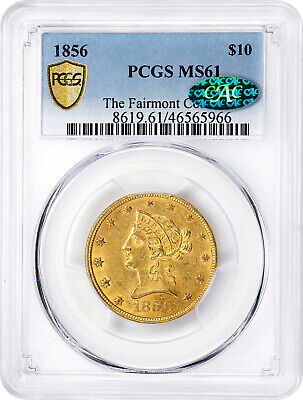In the world of coin collecting, a coin’s condition can significantly influence its value. As a numismatist, understanding the importance of coin certification and grading is crucial for ensuring long-term value. This article delves into why certification matters and how it plays a pivotal role in assessing and preserving the worth of collectible coins.

What is Coin Certification?
Coin certification, also known as coin grading, evaluates a coin’s condition and authenticity by a professional grading service. These services provide an unbiased assessment of a coin’s physical state, which is then encapsulated in a protective holder. The encapsulated coin, called a “slab,” displays the grade and other relevant information.
Key Grading Agencies
Several respected grading agencies specialize in coin certification. Among them, the following are the most recognized:
- Professional Coin Grading Service (PCGS)
- Numismatic Guaranty Corporation (NGC)
- American Numismatic Association Certification Service (ANACS)
- Independent Coin Graders (ICG)
Each agency has its own grading standards and procedures, but all provide reliable assessments that collectors and investors can trust.
The Coin Grading Scale
Grading agencies use a standardized scale to evaluate coins ranging from 1 to 70. This scale, known as the Sheldon Scale, was developed by Dr. William H. Sheldon in 1949. Here’s a brief overview of the grading scale:
| Grade | Description |
|---|---|
| 1 | Poor |
| 20 | Very Good |
| 40 | Extremely Fine |
| 60 | Mint State/Uncirculated |
| 70 | Perfect |
Understanding this scale is essential for collectors, as it directly impacts a coin’s market value.
Why Certification Matters
The certification of coins offers several benefits to collectors and investors alike. Here are some of the primary reasons why certification is necessary:
Authenticity Verification
Certification helps verify a coin’s authenticity, ensuring that it is genuine and not counterfeit. With the rise of sophisticated forgeries, a professional service certifying a coin’s authenticity is invaluable.
Accurate Grading
Professional grading accurately assesses a coin’s condition based on standardized criteria. This accuracy is crucial for determining the coin’s fair market value.
Market Confidence
Coins certified by reputable agencies often command higher prices in the marketplace. Buyers and sellers have greater confidence when a coin’s condition is professionally verified.
Protection and Preservation
The encapsulation of certified coins protects them from environmental factors and handling that might otherwise damage their condition. This preservation extends the coin’s longevity and maintains its value over time.
The Impact on Long-Term Value
Certification plays a vital role in maintaining and increasing the long-term value of coins. Collectors and investors who prioritize certified coins typically enjoy several advantages:
Enhanced Liquidity
Certified coins are more accessible to sell and trade, as potential buyers can trust the grade and authenticity. This liquidity is advantageous for those looking to capitalize on their investment.
Market Stability
The standardized grading systems used by professional certification services help stabilize the coin market. Collectors can make informed decisions based on consistent grading criteria, reducing the risk of overpaying or undervaluing coins.
Appreciation Potential
As the demand for certified coins grows, so does their potential for appreciation. Well-preserved, certified coins often increase in value over time, especially if they are rare or in high demand.
Conclusion
In conclusion, the certification and grading of coins are fundamental practices for ensuring their long-term value. By verifying authenticity, providing accurate grading, and protecting coins from damage, certification offers significant benefits to collectors and investors. Whether you’re a seasoned numismatist or a novice collector, understanding the importance of coin certification is essential for making informed decisions and maximizing the potential of your coin collection.